Friday Phone Call # 22
Anne Bogart of SITI Company
To continue the focus this week on ArtsEmerson, the Commons, and the College, I have the sheer pleasure of talking with Anne Bogart. There is so much here we could have talked for hours. Such generosity in this person. She naturally calls out the bright spots in her own experiences with the world of producers and presenters. She shares her own earliest thinking about her new piece, Café Variations, which was headed into rehearsal at ArtsEmerson as we spoke and is running this week. She talks about her own experience of the intersection between the academy and professional artistic process—with a huge shout out to the students of Emerson College who are joining the company on stage for this one. She talks about her relationship with playwright Chuck Mee and her history with Rob Orchard, ArtsEmerson’s Executive Director who has written about his own relationship to this whole adventure here. And we talk about coffee, cafes, and starting a new adventure with a “trip and fall."
Listen to weekly podcasts hosted by David Dower as he interviews theater artists from around the country to highlight #newplay bright spots. You can subscribe to the series via iTunes or this RSS Feed (for Android phones).
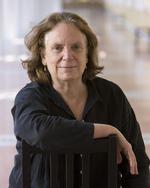
Photo by SITI Company
Transcript
David Dower: Hello, Anne.
Anne Bogart: Hey, David.
David: I'm talking to Anne Bogart of SITI Company, who's at ... Well, when people are listening to this, Anne, you'll be in rehearsal at Emerson College in ArtsEmerson for Café Variations.
Anne: Correct.
David: Yes, and so I wanted to talk a little bit about the project itself, how it's coming together, and then this really exciting piece of it, which is you have twenty-something students on stage with you.
Anne: Yeah, we have twenty two students from the undergraduate performing arts program at Emerson, and then eight SITI Company members who are far from being students. They're mature, I would call them. Mature actors-
David: You're making this piece to be able to scale, right? The piece will live on in the world with your company. It doesn't always require thirty performers, but, at Emerson, you're going to get to play with that many bodies in space again.
Anne: Yeah, my dream is that the piece is actually viral because the text is from Chuck Mee, and the music is ... Thanks to the generosity and interest of the Gershwin family and foundation, we're allowed to work with the incredible music of the Gershwins, at least in this iteration. We'll see how they like it after we open. But in the spirit of Chuck, who, as you know and some people might know, actually puts all of his work online, and so it's, "Use it, appropriate it, take it." And, in that spirit, I'm hoping that this piece actually becomes a viral kind of piece. In other words, I hope that some of the students who are now in the production, who are in rehearsal with us, will take parts of it and perform it in atriums in museums.
David: Oh, wow.
Anne: And then, also, there's plans for SITI Company to take a smaller version of it to various other performing arts programs that usually have to do with universities, either with students or without students, so it's kind of an elastic, flexible production that is made in modules, so that you can put it together in different ways. It's based on ... you know what? The text in it, I went through all of Chuck ... Chuck, who's not only a SITI Company member, but one of my dearest friends in the world, and actually married my wife and me, Rena Fogel and me together, and so we have a long history.
And Chuck is somebody who I think about a lot, during every day, I'd say. And something that he ... I think as every great author has a kind of author's message that is repeated over and over, I think his is that we become who we are through our relationships with others. It's Aristotelian or also Heideggerian, although Heidegger, which is, "We become through we are through our relationship with others and the environment." It's in going out into the world that we discover who we are. And so I went through all of Chuck Mee's plays. I'm telling you more than you wanted to know, David, but-
David: No, this is wonderful.
Anne: And I chose scenes, or you might call them modules or little fragments, from many, many, many of his plays that either happened in cafés or could happen in a café, because I think of the café, this being Café Variations, as a sort of third space. This is not an original idea, that the home is the first space, that work is the second space, and that the third space is a public place of pluralistic discourse. And I started dreaming about a place. It's a café, and it's one that I actually want to exist because, between you and me and the lamppost, I cannot stand Starbucks. I hate the atmosphere. I hate the smell. I don't like the coffee. It tastes burnt. And I hate that when you go in Starbucks and, not all cafés are like this, but I'm a sort of anti-Starbucks person, even though I also spend money there, which is also the paradox is I actually end up buying coffee there, but I don't like the atmosphere. Everybody's got their heads in their computers and there's not much social life going on.And I wanted to create a café in which people, through their proximity to one another, change. And it really comes from the original idea of cafés, which were places of revolution during the Enlightenment. You think of the great Parisian, Venetian, German cafés-
David: It's interesting, that word, café, it puts you right there in that French café.
Anne: It does.
David: That reminds me though, when you're here, because I know you come ... Because now I'm sitting in D.C., but when you guys get to the Clarice Smith Center with this piece, make sure, if you haven't ever been, that they get you and the company to Busboys and Poets.
Anne: Busboys and Poets, where is that?
David: Yes, which is the D.C. version of what you're talking about, and it's actually one of the most successful environments I've seen for what you're longing for, and, particularly, successful at the original one, which is on 14th and V in Northwest D.C. here. And then, and when you're there, the owner, Andy Shallal, is a huge arts patron, really understands the importance of art in community and not as an economic development engine, but literally as a kind of lifeblood of a healthy community. He's an extraordinary man, and you two would have a great time together. I'm saying this out loud on a recording, and I'm going to remember to connect you two. But it's exactly the place you've been looking for, and I didn't know it existed until I ran into it here. I'm going to miss it, actually.
Anne: I can't wait. I'm getting on a train to D.C. right now, as we speak, so that ... No, I'm joking, that's not really-
David: Yeah, right. Exactly. Yes, it's going to inform the piece for sure. Yeah, a wonderful space. And so I hadn't actually heard this part of it, Anne, which is really exciting to me. You're making a piece that's sort of in the open source mindset of Chuck's own work and hoping that people will continue the work from having come into contact with it. The thing that we're moving there, that we're going to be at work on, is we're trying to create this Center for Theatre Commons, that we're trying to model a similar idea that we can openly share practice, process, and discoveries about new work with everybody involved in new work as a common ... that our discoveries of how effective processes and practices are actually part of the commonwealth of our field. This notion that, when we first arrived there, the very first project that we're going to be intersecting is you at work in this way is just kind of magic.
Anne: Great. I'm glad we lined up together.
David: Yeah. What's it feel like? When was the last time you had thirty bodies in performance?
Anne: This past summer. I do opera a lot, and I did a production of Carmen with a bunch of really wonderful talented young opera singers. I love working with a large palette. I'm a whore that way.
David: Yeah. Well, I remember ... My first encounters with your work were big ... How many were in South Pacific? Is that the-
Anne: don't remember. It was a lot. You saw the-
David:... gymnasium. Yeah. No, I did.
Anne: Can I actually hijack what you said, which is South Pacific, which is actually a little bit ... South Pacific is a little bit at fault for me being here, and it came from Rob Orchard, who now, as you know, runs ArtsEmerson, and is the impresario of Boston, in my humble opinion, right now. I think what he's doing at ArtsEmerson is astonishing. I think he thought he was going to retire, but then it’s a whole new enterprise for him. Anyway, he called me and actually said the following words, "Anne, I'm thinking about that South Pacific you did back in the eighties," which was actually a production with NYU students that was maybe the height of my career. I think that was the one that actually was ... We couldn't extend it. We didn't get shut down by the Rodgers & Hammerstein folks, but they didn't let us extend it, even though it was selling out every performance we could have.
But Rob said, "Do you ever think of doing another musical thing like that? I loved what you were doing back then." And I said, "Actually, oddly enough, I have been thinking about a music theatre piece, which would involve the text of Chuck Mee and music and dance and maybe music from the Great American Songbook, of maybe music from the public domain." And then he said the magic words. He said, "Would you consider working with the music of George and Ira Gershwin?" And I just stopped speaking at that moment. And, of course, when I called Chuck and I said, "What do you think about your words with the music of the Gershwins?" Chuck was ... I think he stopped speaking too. We were both so delighted at that idea. It really is a relationship to that early work of South Pacific, in a way.
David: That is so interesting, the intersections of all of this, because I was at NYU when you did that piece-
Anne: I've seen you before, David.
David: ... and I'm drawn to Boston for the same reasons. What Rob is doing at ArtsEmerson is the thing that drew me to even contemplate such a complicated thing as moving this there. Yeah, he's got some kind of vortex there.
Anne: Yep. I think so. I think so. I think Rob is magical right now.
David: Yeah. And you had a big residency at Arizona as well, that involved a lot of relationship with the campus. I wanted to ask you specifically. We'll finally get to the question that I wanted to take your time on, which is when we first announced that we were making this move with the Center for Theatre Commons, there was a lot of concern that we were heading to a dry sort of ivory tower environment, from which we were going to observe the field, and I don't know what people thought the impact would be on the relevance of the work that we were doing, but there was concern about that.
And I've never thought of the two as separate in that way, the academic world and the world of practice, and I especially know it's not at Emerson. Just the story that Rob told me from the very beginning about when he came out of retirement to do it, it was clear that there was such a vibrancy to that intersection. You've been working in that intersection for decades now. Can you describe what it's like for you as an artist, and then also as a mentor/teacher, to be working in that intersection?
Anne: Well, it's a subject very dear to my heart, and I run the graduate directing program at Columbia, and I talk to my grad directors all the time about their futures, and they're interested in various things. Some want to be artistic directors. Some want to work internationally, and it's a very international program. But what I say to them again and again, is when I was going into the field, the regional theatres were a place of great excitement and hope and of great companies that were formed by great artistic directors. And I said times have changed and there are still a few regional theatres that are still breaking new ground in an exciting way, but many, many of the regional theatres have actually become a little bit boring and not a place to go to that is excited by new ideas or risk taking. And there's reasons for that we don't have to go into.
But there's a whole 'nother landscape out there that is on the campus of universities mostly, where there are performing arts centers with directors like ... The directors who run the performing arts centers who are the most visionary, risk-taking, fun-loving, collegiate, collegial people that you're ever going to meet. And you mentioned University of Arizona, ASU, and whenever you mention places that are of great excitement, like we already mentioned Rob Orchard, it's usually because of one person. There's the Rob Orchard who is at ArtsEmerson who is making the liaison between the university and the performing arts. There's the Colleen Jennings-Roggensack at ASU who is making that liaison, so the students and the companies that come through are connected. There's Chuck Helm at the Wexner Center. There's the Walker ... There's many, many exciting places that all have these visionary people who are running them, and it's an exciting option.
And so I bring this up to directors who are coming into the world because it's another alternative to the regional circuit and you can actually make a living. You can get commissions if you can make work, a, that you can plan several years in advance because, you know as well I do, you have to book two years in advance, which means that you need a company. And secondly, if you have interest in the intersection between the students and the performing arts center, because usually that's a really second area, second as in rich and juicy.
And so, for example, when Rob called, he was open to bringing just SITI Company up to do something, but he said he was interested more in the intersection between the student community and SITI Company. And we jumped on it, mainly because we had had wonderful experiences, say, at Arizona State or at the Ohio State with Chuck Helm, and at other places around the country where these performing arts centers are. And so it means that you don't just blow into town, do a show, and leave. It means that you create a culture and the intersection is very lively, and it's as distant from an ivory tower as you can imagine.
Now Emerson is an interesting case because, much to my shock and awe, the students that we're working with, and most of them are out of the music theatre program, but some of them are out of the regular performing arts program, are some of the most highly trained actors I've met ever. I'm shocked at the level of their training in this undergraduate music theatre program. It's a stunning level of virtuosity. And they're adventurous. They're good people. They're smart. I didn't expect that.
David: You're getting, as an artist, your company is getting people to work with who you can actually create on and with, and they're getting an education at the same time.
Anne: Exactly. It's the whole shmegegge. I don't know what that means, but that's what it is.
David: I can't spell it either, so I'm glad this is a podcast. That's fabulous. Talk about how the ... I've read a little bit about this because I'm on that NEFA panel, so I know a little bit about the project and I can write about that. But talk a little bit about the modular nature of this because I think it's so fascinating. I'm seeing more and more people working in scalable forms, and I'm sure that is driven by all sorts of external pressures, but I wonder how it's coming together to spark you artistically. It's not just a concession to pressure. You're alive with the idea of it.
Anne: Yes, but we're right at the genesis, and so I can't guarantee anything. In other words-
David: Of course.
Anne: ... it's an idea that, actually, I've been fond of for years, the notion of elastic modules, meaning that you could do something with a large number of people or do bits and pieces of it with a small number. And my original idea was that any module, which could, say, be a three and a half minute scene, would be completely satisfying on its own, that that was the rule of making this production. And that as you put it together, it exponentially builds into a bigger and bigger and more satisfying world. But the bits and pieces, the fragments or the modules, have a whole story. Say, it's two people who come into a café and change each other's lives in three minutes in choreography and text and maybe a song. I don't know. Now that's all theory, and I'm very nervous about speaking about it with you because I'm in the creation phase, in which case, I know nothing and I'm just kicking my feet and flapping my arms right now. I'm hoping that's what happens. That is the intention and we'll see.
David: And it seems like it's not just elastic in terms of size, but then there's an elasticity in terms of performance venues that this thing can go viral into.
Anne: Yeah, and I'm hoping that it can be done in community centers and it can be done in atriums of museums. It can be done in cafés. It can be done on a large proscenium stage. It could be done on a thrust. It could be done in the round, but it's built to be adjustable. Now, part of that reason, that has come from practical reasons, is that we get a lot of complaints, SITI Company, that we're too expensive because we're very ... We care a lot about design. We care about taking the time to put the piece in the space. We're not sort of a throw it up, throw it up, get it out company. We like the interaction with the venues we're at. But this is an attempt to say, "Well, okay. We could have versions that actually are down and dirtier, that could be put almost anywhere." Again, it's all a big experiment.
David: Yeah. But there's something in the down and dirty thing that's also going to have your aesthetic in it. There's an aesthetic unity, even though it's going viral, it seems. In some say, the idea is maybe what's going to be holding it ... What do you imagine is holding all these things together, or is anything-
Anne: I think that-
David: ... if it actually does hold?
Anne: I think it goes back to Chuck Mee and his, as I mentioned before, his author's message, which is, "We become who we are through our relationship with others." And this is a play, in whatever sizes or segments or modules that you see, is about that, and it is about it, not only in text, but in what you see and what you feel. Our subject matter in the theatre is always, and it's what distinguishes it from any other art form, is how are we getting along and can we get along better, that the role of theatre is to ask that question. And Chuck's work, in particular, does, and this play is very much just about that issue, how can we get along.
David: Wow. Well, I can't wait to see what it's turning into once you get into the room. This is the first time you're getting into rehearsal with it for ArtsEmerson, and then you go from there to a residency at the University of Maryland, where you're not actually in residence with student performers, right?
Anne: That's correct. We're going to then make a version of it with a much, much, much smaller cast of SITI Company, so that we'll make the second version of it, which is a tourable version that doesn't require a live orchestra or a band and thirty actors. That will be the next step, although I hope-
David: You'll have both of those things ... You're spending a lot of time with this project over the life of this big idea of scalability. It adds a level of complexity to the developmental process.
Anne: Oh, yeah. It really does. It does. I just want to go back to your other question, for just a second, about what will people.
David: Please.
Anne: In thinking about the structure of this piece and the story of this piece, I think whatever version will always have at least one waiter and at least two other people, or, ideally, five other people. Six people would be a really perfect little size. And the first thing that will always happen is a waiter is sitting alone in his café that is a bit in disarray. He senses a woman come in behind him into the café, and she's looking around, and I think she's on the verge of bursting into tears. He turns around and sees her, and falls instantly in love. And he stands up to walk towards her, and as he walks towards her, he trips and falls down, as one does when one is overtaken. And in our big version, that starts the overture. That starts and the band kicks in. That trip is a really big deal, that in our heroic acts to actually reach out to other people, we make terrible mistakes. And that trip, for me, is the metaphor of all of the different versions.
David: Wow.
Anne: We overreach. We're too cruel. We are too timid. But when we can actually look at one another and actually have a meaningful and life altering exchange, that's gorgeous. But we mostly make a mistake. We mostly trip. I was just going back to your other question because it's the question that is most on my mind these days. I'm not thinking these days how am I going to make it modular, I'm trying to say what is it really, what is it about.
David: Yeah. Yeah, what is it?
Anne: To me, that ... and when you say, what will all of the different versions share in common, I think it's something like that trip, that attempt to reach-
David: I didn't even imagine that they would share something physical, but, of course, they would. That's how you work. That's your language. That's beautiful. I also feel like that's ... I want to stop it there because it's perfect for what I need here, which is I think that's the permission I need to go into this move, knowing that there's probably a trip here first.
Anne: There's probably several.
David: I'm totally in love with what's happening, and I turn around, I think I am the waiter, I guess because I spent so much times in the business. But I feel like the waiter in your story- in turning around to ArtsEmerson, I feel like the first thing I'm going to do is trip and just so we all know that.
Anne: Just so you know that. I think that's great.
David: Well, I'll see you there, sometime around the time of this phone call. I actually arrive in Boston full-time in the beginning of April, so I will be-
Anne: We'll have to find a good café to go to and have a cup of coffee together.
David: Yes, and there's really good coffee right down the street from-
Anne: The Thinking Cup. The Thinking Cup. Now I would highly advertise that-
David: Yes, I was so happy to stumble on it because I love Stumptown coffee, as long as we're talking about what we like and we don't like. I do love Stumptown.
Anne: Stumptown is the best. I have my refrigerator full of Stumptown coffee right now because I'm stocking up.
David: And where are you? Where might I be reaching you?
Anne: I could probably look out the window and see the Thinking Cup. I'm just catty-corner across the Boston Commons from the Thinking Cup.
David: Oh, you're in the Emerson housing?
Anne: Yep, a very nice house.
David: Oh, terrific. Oh, I'll have that picture in my head. Well, thank you, Anne, for your time, and I so look forward to seeing you in rehearsal.
Anne: Great. Well, we'll have that cup of coffee.
David: Absolutely. Thank you. Bye.
Anne: Okay. All right.

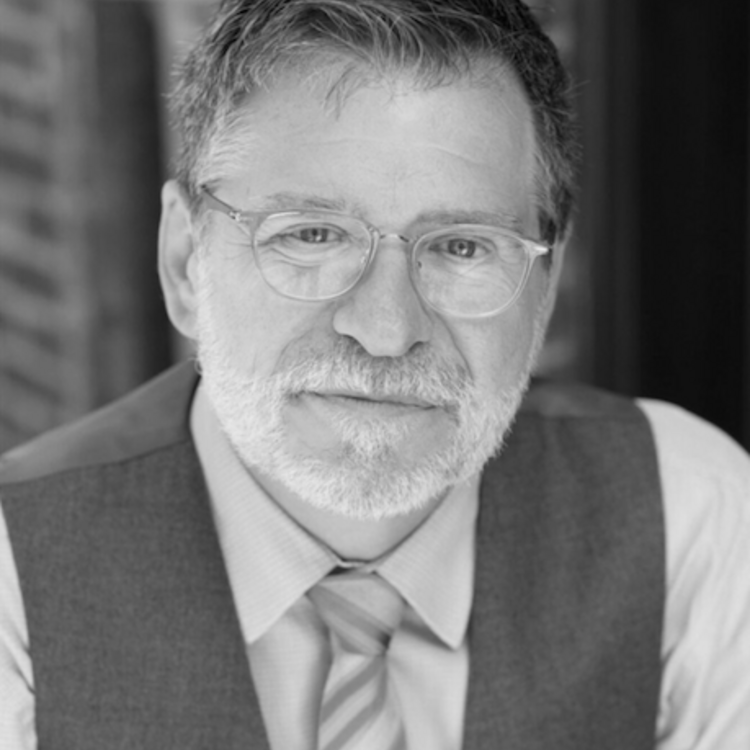
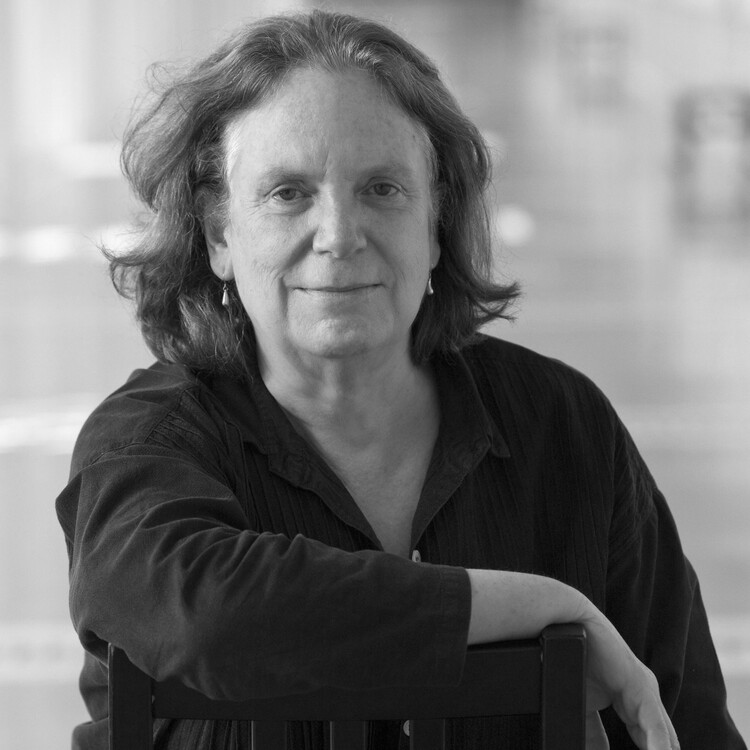
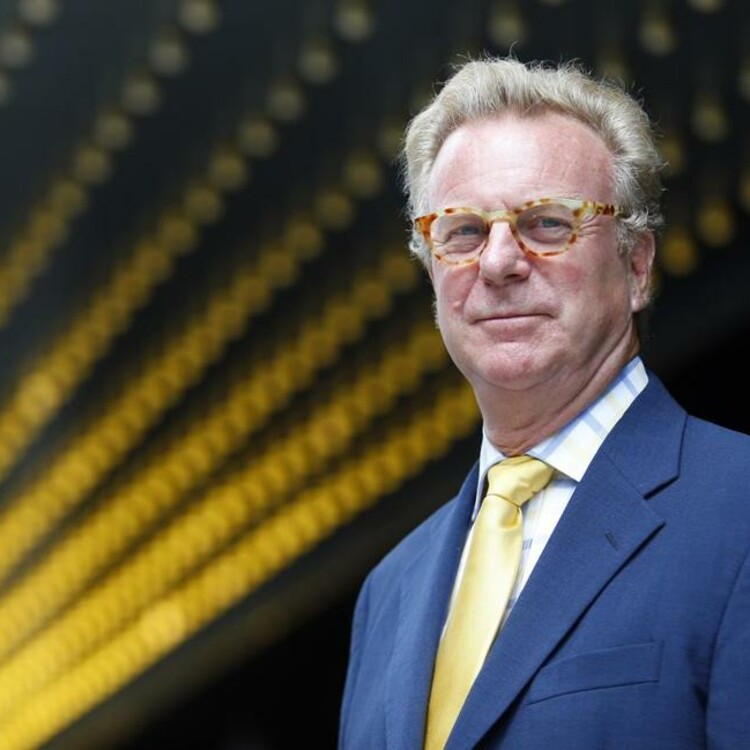
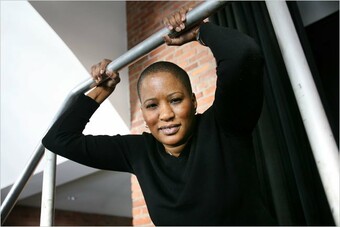




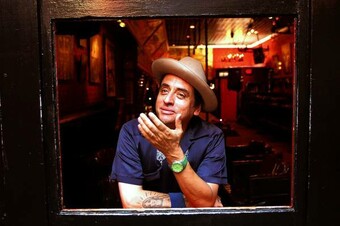

Comments
The article is just the start of the conversation—we want to know what you think about this subject, too! HowlRound is a space for knowledge-sharing, and we welcome spirited, thoughtful, and on-topic dialogue. Find our full comments policy here